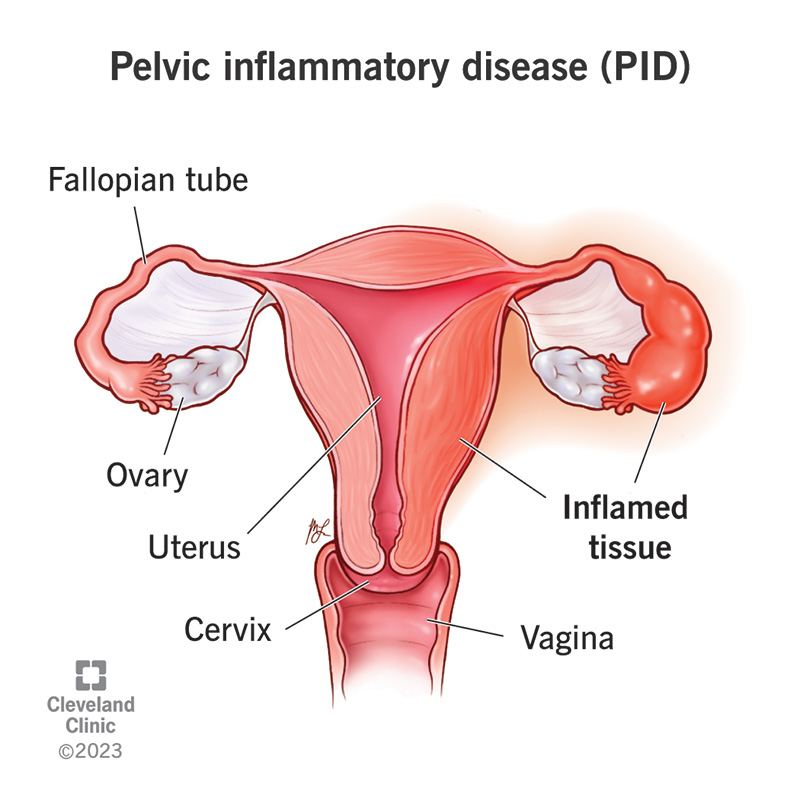
Pelvic inflammatory disease (PID)
Pelvic inflammatory disease (PID) is an infection or inflammation of the female reproductive system. It can damage one or more organs, including the cervix uterus (womb) endometrium (uterine lining), fallopian tubes, and ovaries.
Overview
PID can cause chronic pelvic pain in some people while symptoms might be minor or silent in others meaning some people may be unaware they have PID.PID is curable; however, if left untreated it can result in infertility ectopic pregnancy, and reproductive system damage. PID can affect anyone, although it is more frequent in sexually active women in their 20s. It is usually an ascending infection that begins in the lower genital tract and spreads upward. The majority of PID cases are caused by a sexually transmitted illness. PID is primarily diagnosed clinically and should be suspected in female patients who have lower abdomen or pelvic pain and genital tract tenderness.
Causes
A bacterial infection is frequently the cause of PID. The most common cause is sexually transmitted diseases (STIs) specifically: Chlamydia gonorrhoea Mycoplasma genitalium. PID can also be caused by the following factors: appendix rupture (burst) bowel infection (such as gastroenteritis) Vaginal infections (such as bacterial vaginosis or BV) and some surgical operations (such as dilatation and curettage (D&C) insertion of an intrauterine device (IUD) or surgical abortion).
Symptoms
Some women with pelvic inflammatory diseases are asymptomatic. Women who do have symptoms may experience the following:
• Lower abdominal ache (the most prevalent symptom)
• Upper abdominal discomfort
• Fever
• Painful sex
• Painful urination
• Excessive or foul-smelling vaginal discharge
• Sleepiness Pelvic inflammatory illness can cause mild to moderate pain.
Some women, however, experience significant pain and symptoms such as
Acute pain in the abdomen
Vomiting
Fainting, and a high fever (more than 101°F).
If you have severe symptoms, the virus could have spread to your bloodstream or other organs. It could endanger your life.
Ayurvedic View
Pittaja yoni vyapad- Due to aggaravated doshas namely vata and pitta dosha, enters yoni (female reproductive system) leads to foul smell discharge, pain, burning sensation in vagina etc, this is pelvic inflammatory disease. Ayurveda way of approach is to bring dosha back to balance, reduce the symptoms by ayurvedic panchakarma treatment and treatment done to heal the reproductive organ.
Ayurvedic Treatments
Lepanam Vasti Pichu Pizhichil Uttara vasti Vasti
Naturopathy Treatments
Hip bath Sitz bath Spinal bath Enema Mud therapy Packs Chromotherapy Acupuncture Diet therapy
Pelvic inflammatory disease (PID)
Treatment for
DISCLAIMER: Listed treatment details are only for information purposes. Treatments and duration may vary depending on numerous factors. Treatments for your condition may not be limited to this list.






















